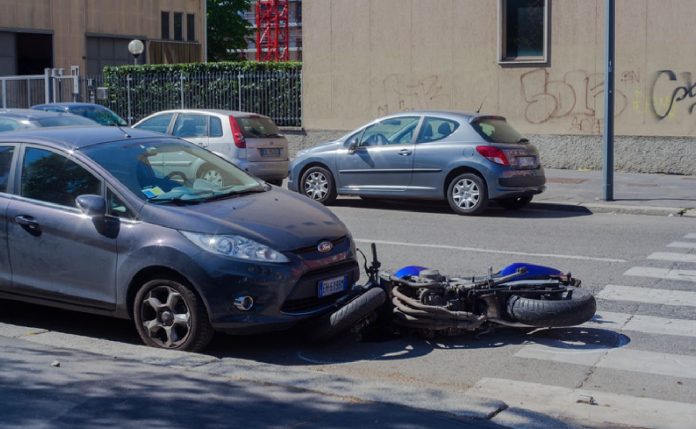In the hustle and bustle of modern life, vehicular accidents have become an unfortunate but all too common occurrence. When such incidents involve cars and motorcycles, the legal landscape can quickly become complex and overwhelming. Navigating the aftermath of a car or motorcycle accident involves understanding the intricacies of the law, which plays a crucial role in determining liabilities, compensation, and the path to justice. In this comprehensive guide, we’ll break down the essential aspects of car and motorcycle accident law, offering insights and advice to help you navigate this challenging terrain.
The Foundations of Car and Motorcycle Accident Law
Car and motorcycle accident law encompasses a wide array of legal principles and regulations that govern incidents involving vehicles on the road. From determining fault to assessing damages, these laws establish a framework for handling the aftermath of accidents. In most cases, these laws are state-specific, which means they can vary significantly from one jurisdiction to another.
Liability lies at the core of car and motorcycle accident law. Establishing fault is essential for determining which party is responsible for the collision and subsequent damages. As bbjlawyers.com states, it’s important to note that negligence often plays a pivotal role in liability assessments. Factors such as speeding, reckless driving, failure to yield, and distracted driving can all contribute to a finding of negligence, potentially resulting in legal consequences for the at-fault party.
The Role of Insurance
Insurance coverage is a critical aspect of the aftermath of any vehicular accident. Both car and motorcycle accidents often involve insurance claims, which can be complex and intricate to navigate. Insurance companies come into play to determine the extent of coverage, compensation, and the resolution of disputes between parties involved in the accident.
When dealing with insurance companies, it’s crucial to remember that their primary objective is to minimize payouts. This often means that they may attempt to offer settlements that may not fully cover your medical expenses, property damage, and other losses. It’s advisable to consult with a legal professional before accepting any offers or signing documents presented by insurance companies.
Seeking Compensation and Damages
After a car or motorcycle accident, seeking compensation for damages is a key step towards restoring your life to its pre-accident state. Compensation can cover a variety of losses, including medical bills, property damage, lost wages, pain and suffering, and even emotional distress in some cases. Understanding the full extent of your losses is crucial when pursuing a fair settlement.
Documenting damages thoroughly can significantly strengthen your case when seeking compensation. From gathering medical bills and repair estimates to collecting evidence from the accident scene, having a robust collection of documents can provide undeniable proof of the losses you’ve incurred.
The Legal Process
Navigating car and motorcycle accident law is a complex endeavor that often requires legal expertise. Consulting an experienced attorney who specializes in personal injury and accident cases can provide you with valuable insights into your legal rights and the potential outcomes of your case. An attorney can guide you through the legal process, ensuring that your rights are protected and that you receive fair compensation.
In some cases, negotiations with insurance companies may not lead to a satisfactory resolution. In such instances, filing a lawsuit may be necessary to pursue your claim further. This legal step involves submitting formal documents to the court and engaging in legal proceedings that can ultimately lead to a trial, where a judge or jury will determine the outcome of your case.
Motorcycle-Specific Considerations
Motorcycle accidents often present unique challenges due to the inherent vulnerability of riders. The lack of protective barriers and the size disparity between motorcycles and other vehicles can lead to severe injuries in accidents. Consequently, the legal considerations for motorcycle accidents often emphasize the duty of other drivers to exercise extra caution around motorcyclists.
Many states have specific helmet laws that mandate helmet usage for motorcycle riders. According to one motorcycle accident lawyer, violating these laws can impact your legal rights in the event of an accident. Even if your state doesn’t require helmets, wearing one can significantly improve your safety and strengthen your case should an accident occur.
Seeking Closure and Justice
Closure is a fundamental aspect of the healing process after a car or motorcycle accident. Seeking justice and a sense of closure can help victims and their families move forward. Legal resolutions provide not only financial compensation but also a sense of accountability for the responsible party.
While trials are a traditional route for resolving legal disputes, alternative dispute resolution methods such as mediation and arbitration are gaining popularity. These methods offer more flexible and collaborative approaches to resolving conflicts, potentially resulting in quicker resolutions and reduced emotional stress.
Conclusion
Navigating the intricate world of car and motorcycle accident law requires a solid understanding of the foundational principles, insurance processes, legal steps, and unique considerations that come into play. Whether you’re a driver, rider, or a concerned family member, familiarizing yourself with these legal aspects can provide you with the tools to effectively navigate the aftermath of an accident. Remember, seeking professional legal counsel is essential to ensuring your rights are protected and that you receive the compensation and justice you rightfully deserve.



































